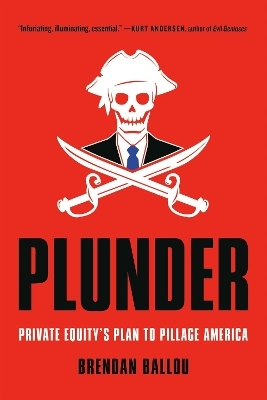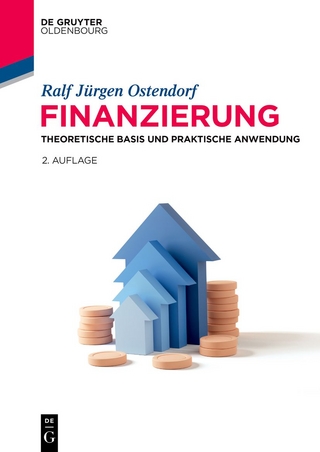
Plunder
Private Equity's Plan to Pillage America
Seiten
2025
PublicAffairs,U.S. (Verlag)
978-1-5417-0211-0 (ISBN)
PublicAffairs,U.S. (Verlag)
978-1-5417-0211-0 (ISBN)
- Noch nicht erschienen (ca. Mai 2025)
- Versandkostenfrei innerhalb Deutschlands
- Auch auf Rechnung
- Verfügbarkeit in der Filiale vor Ort prüfen
- Artikel merken
"A damning indictment of private equity" (New York Review of Books), this authoritative exposé shows what it is, how it kills businesses and jobs, how the government helps, and how we stop it.
Private equity surrounds us. Firms like Blackstone, Carlyle, and KKR are among the largest employers in America and hold assets that rival those of small countries. Yet few understand what these firms are or how they work.
In Plunder, Brendan Ballou explains how private equity has reshaped American business by raising prices, reducing quality, cutting jobs, and shifting resources from productive to unproductive parts of the economy. Ballou vividly illustrates how private equity firms buy up retailers, medical practices, prison services, nursing-home chains, and mobile-home parks, among other businesses, using little of their own money to do it and avoiding debt and liability for their actions. Forced to take on huge debts and pay extractive fees, companies purchased by private equity firms are often left bankrupt or as shells of their former selves, with consequences for the communities that long depended on them.
Perhaps most startling is Ballou's insight into how this is happening with the active support of various arms of the government. But, as Ballou reveals in an agenda for reining in the industry, private equity can be stopped from wreaking further havoc.
Private equity surrounds us. Firms like Blackstone, Carlyle, and KKR are among the largest employers in America and hold assets that rival those of small countries. Yet few understand what these firms are or how they work.
In Plunder, Brendan Ballou explains how private equity has reshaped American business by raising prices, reducing quality, cutting jobs, and shifting resources from productive to unproductive parts of the economy. Ballou vividly illustrates how private equity firms buy up retailers, medical practices, prison services, nursing-home chains, and mobile-home parks, among other businesses, using little of their own money to do it and avoiding debt and liability for their actions. Forced to take on huge debts and pay extractive fees, companies purchased by private equity firms are often left bankrupt or as shells of their former selves, with consequences for the communities that long depended on them.
Perhaps most startling is Ballou's insight into how this is happening with the active support of various arms of the government. But, as Ballou reveals in an agenda for reining in the industry, private equity can be stopped from wreaking further havoc.
Brendan Ballou is a federal prosecutor and served as special counsel for private equity in the Justice Department's Antitrust Division. Previously, he worked in private practice and before that in the National Security Division of the Justice Department, where he advised the White House on counterterrorism and other policies. He graduated from Columbia University and Stanford Law School. He lives in Washington, DC.
| Erscheint lt. Verlag | 29.5.2025 |
|---|---|
| Sprache | englisch |
| Maße | 140 x 210 mm |
| Themenwelt | Wirtschaft ► Betriebswirtschaft / Management ► Finanzierung |
| Wirtschaft ► Volkswirtschaftslehre ► Wirtschaftspolitik | |
| ISBN-10 | 1-5417-0211-5 / 1541702115 |
| ISBN-13 | 978-1-5417-0211-0 / 9781541702110 |
| Zustand | Neuware |
| Haben Sie eine Frage zum Produkt? |
Mehr entdecken
aus dem Bereich
aus dem Bereich
Allgemeines Steuerrecht, Abgabenordnung, Umsatzsteuer
Buch (2024)
Springer Gabler (Verlag)
28,00 €
theoretische Basis und praktische Anwendung
Buch | Softcover (2023)
De Gruyter Oldenbourg (Verlag)
39,95 €


